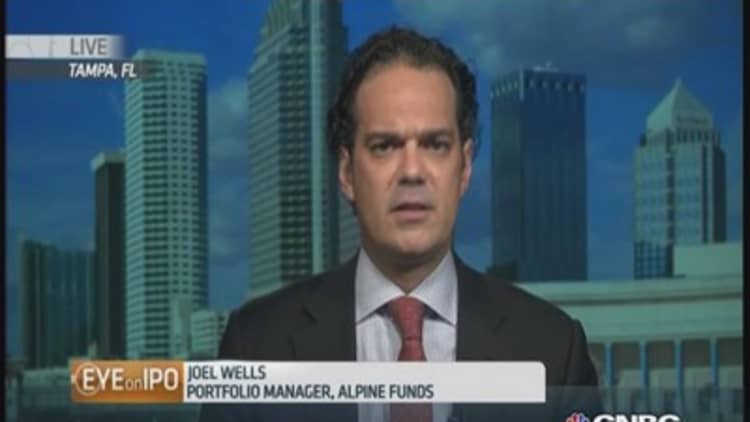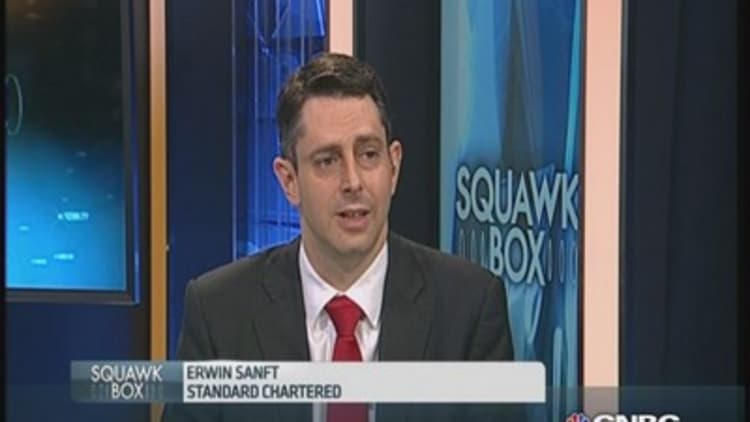Wang Jianlin built Dalian Wanda Commercial Properties into China's most powerful real estate firm with a mix of savvy political instincts and army-bred discipline, carefully navigating the country's government-led business environment.
"Remain close to government, and away from politics," Wang, 60, and now a billionaire, told Reuters this month. "It means deal more with the authorities," he said, referring to the Communist Party and the government, "And less with individuals."
In 1988, Wang left the army and borrowed 1 million yuan ($161,000) to start a real estate company in Dalian, northeast China. He attracted global firms such as Wal-Mart Stores and Macquarie Group as partners.
Now the company that pioneered mixed-use commercial developments in China is making its market debut on Tuesday in Hong Kong's biggest stock listing since 2010, raising $3.7 billion in the process.

"Wang has found this golden path of how to collaborate with the government and do things they want him to do," said Raffi Amit, a professor of entrepreneurship and management at the University of Pennsylvania's Wharton School. "His business model recognizes that the government is an important external stakeholder."
The Hong Kong listing is a watershed for one of China's wealthiest businessmen. Predicting the country's rapid urbanization is coming to an end, Wang wants to tilt his business toward tourism and leisure - as well as operations overseas, a challenge that will test his instinct for targeting the intersection of business and government outside his home territory.
Wang told local media at the weekend that he wanted to see Dalian Wanda earn as much as 30 percent of its revenue outside China by 2020. He has already engineered the buyout of British luxury boat maker Sunseeker and the debt-fueled $2.6 billion acquisition of U.S. cinema chain AMC Entertainment Holdings, but greater success overseas will require new contacts.
It's even more important to work with business organisations instead of government officials offshore, Wang said earlier this month. "Foreign politicians don't have resources - or limited resources. It's useless dealing with them."
Army life
Wang Jianlin was raised in China's southwest Sichuan province, the eldest of five brothers. His father was a People's Liberation Army veteran who joined the Red Army in 1933 and served alongside Mao Zedong during the Long March of 1934 and 1935.
Wang followed his father into military service when he was 15, advancing to platoon leader before being selected to attend Dalian Army School in 1978. He later became a staff officer at the school and served as its deputy director.
Read More
Wang, whose group has opened 104 Wanda Plaza shopping malls, 72 luxury hotels and 150 movie theaters in 111 Chinese cities, owes much of his success to the military discipline he has brought to Dalian Wanda.

"His army experience left a deep impression. He's very decisive," said Liu Chuanzhi, the founder of computer giant Lenovo Group and Wang's long-time friend.
Wang started out buying construction quotas from one of Dalian's three state-owned property developers and taking on jobs nobody else wanted: redeveloping slum housing. The local government, led by now-disgraced former mayor Bo Xilai, supported Dalian Wanda at the time.
The firm added a bathroom to each flat, a privilege then enjoyed only by senior officials, allowing Dalian Wanda to sell the apartments at premium prices. When he saw a peak in residential housing sales at the end of the 1990s, Wang shifted his focus to commercial property.
He also took control of Dalian's football team in 1994, at a time when Bo elevated the sport as an important calling card for the city. Wang renamed the club Dalian Wanda and over the next six years it won four national league championships.
"That gave him brand recognition, which no other developer had," said Amit of Wharton School. "Everybody knew what that name stood for."
Last year brought a moment that symbolized Wang's shrewdness in business dealings. At a glitzy event outside of Qingdao, in eastern China, Wang celebrated the groundbreaking for an $8.1 billion film studio and tourism development alongside guests like Leonardo DiCaprio, Nicole Kidman and John Travolta.
On that same afternoon, 350 kilometers to the west at a courthouse in Jinan, Bo was convicted of corruption and abuse of power, sealing the fate of another local industrialist, Xu Ming, who admitted to forking out millions to Bo's family.
'Tough negotiator'
The Dalian Wanda brand caught the attention of Wal-Mart in 2000, when it was looking to partner with local property firms with "a vision of development that serves customers", said Joe Hatfield, who led the world's biggest retailer's China business for 12 years.
Wal-Mart's participation in Dalian Wanda's commercial expansion created a virtuous circle.
Once Australia's Macquarie Bank started to co-invest with Dalian Wanda, Wang abandoned his earlier tactic of selling off property. He started a leasing arm, launched his own cinema chain and began building hotels to increase traffic at his commercial properties.
Wal-Mart emphasized the importance of professionalized management, developing training sessions for Dalian Wanda executives, Hatfield said.
The success of the early commercial properties also gave Wang more leverage in negotiations with local governments. At meetings with local officials, Wang persuasively argued their interests were aligned.
"He was a tough negotiator," Hatfield said.

